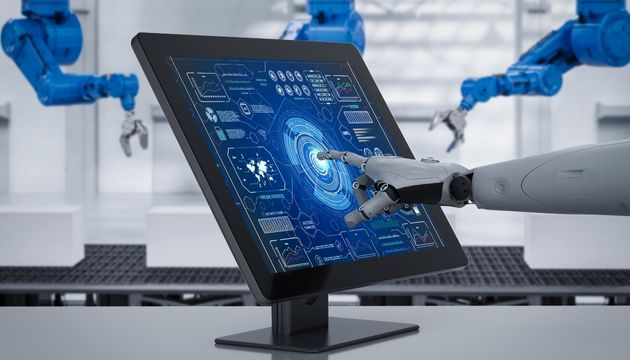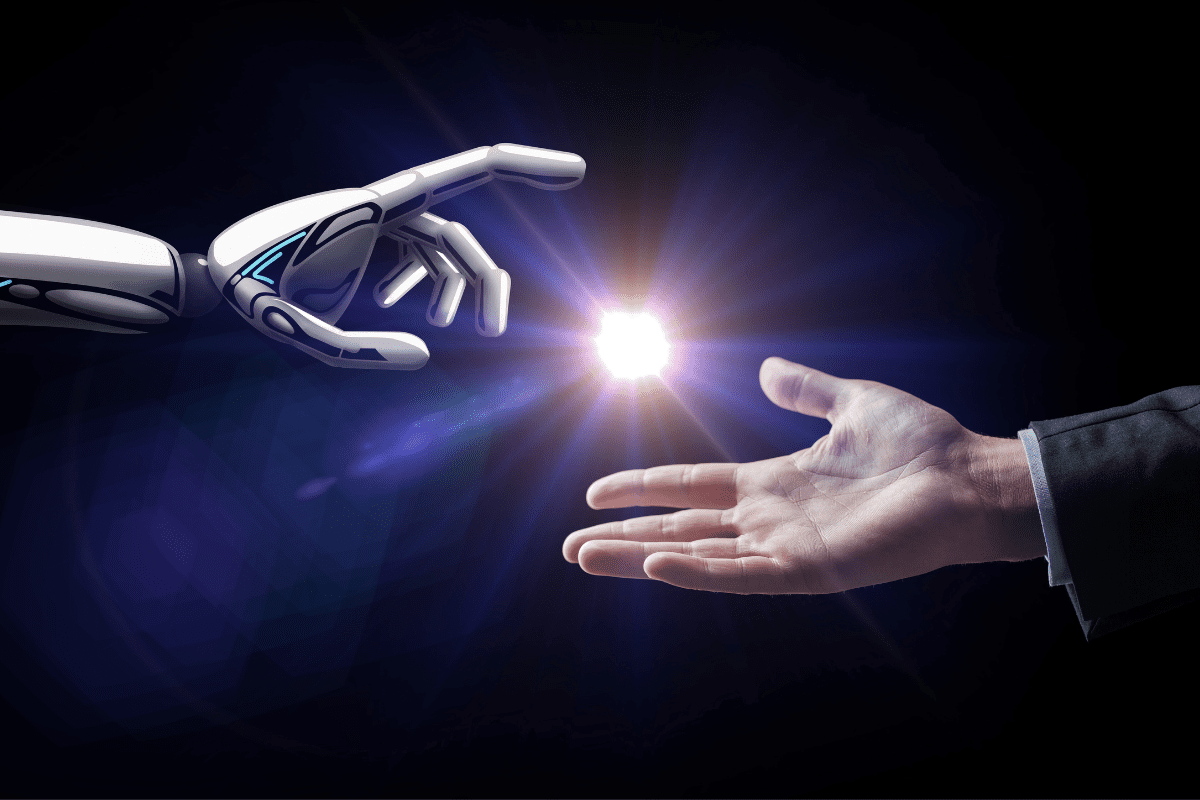Let’s be honest. We’ve all heard the panic: “AI is coming for your job.” But here’s a more grounded take that’s picking up speed in 2025 AI might not take your job, but it will absolutely change the way you do it.
We’re not talking about sci-fi robots taking over. We’re talking about real tools, real workflows, and real change happening across industries. From how we write emails to how entire departments operate, AI is shifting the structure of modern work. So what should you expect? Let’s break it down in a way that makes sense whether you’re in marketing, logistics, healthcare, or just figuring out your next career move.
AI Is Trending, But It’s More Than Hype:
In 2025, artificial intelligence is no longer just a tech trend. It’s a central piece of how businesses operate, and its influence is growing fast. Need to analyze a mountain of data? AI can do it in seconds. Want to predict customer behavior or personalize marketing? AI is your new best friend.
What’s different now is that AI is not limited to tech companies. Retail stores, HR departments, insurance firms, and even local nonprofits are using AI tools to work smarter. And the results? Faster decision-making, improved customer experience, and a whole lot more efficiency.
But there’s a twist: AI is not great on its own. It needs human direction, creativity, and emotional intelligence to make it work right. So instead of fearing AI, it’s time to get friendly with it.
Collaboration Beats Competition:
Here’s the thing that’s making waves — AI is not taking over jobs wholesale. It’s changing how tasks are done, especially the repetitive stuff. That means the real power lies in collaboration. The future of work looks a lot like this: AI handles the busywork, and humans focus on thinking, planning, and creating.
This combo is already helping teams:
- Reduce burnout by cutting down on repetitive tasks.
- Get better insights through real-time analytics.
- Speed up testing and feedback in creative projects.
- Deliver more personalized experiences for customers.
When used right, AI is not a threat. It’s a time-saver, a creativity booster, and a decision-making accelerator.
Also Read: What U.S. Tariffs in 2025 Really Mean for Your Business?
The Human Skills Still Matter — Big Time
Let’s clear something up. Just because AI is getting smarter doesn’t mean human talent is getting less valuable. In fact, it’s the opposite.
Here are the top skills that are more important than ever:
- Critical thinking: AI can analyze data, but only people can interpret it in meaningful ways.
- Emotional intelligence: Machines don’t understand nuance, tone, or motivation like humans do.
- Communication and collaboration: Especially as teams get more hybrid and global.
- Adaptability: The tech is moving fast, and the best professionals are the ones who evolve with it.
Bottom line? AI can be impressive, but it still needs humans to lead, empathize, and innovate.
Some Concerns Are Real — But So Are the Solutions:
Let’s not sugarcoat it. A lot of people feel uneasy about AI. The fear of job loss, the shift in expectations, the pressure to learn new tools — it’s a lot to take in.
Companies that are doing this well are focusing on:
- Open communication about how AI is being used.
- Offering training and reskilling programs.
- Encouraging feedback and listening to concerns.
- Keeping the human side of culture intact, even as tech ramps up.
If your workplace isn’t doing that yet, it’s worth starting the conversation. The smoother the transition, the more benefits everyone can enjoy.
Also Read: The Must-Have AI Apps of 2025 for Every Business on the Rise
Here’s How Businesses Are Using AI Right Now
Let’s take a quick look at what’s trending in real AI use cases. These aren’t futuristic experiments — they’re happening right now:
- Retail: Forecasting demand and managing inventory.
- Marketing: Creating smarter, more targeted campaigns.
- Customer service: Chatbots handling the easy stuff so humans can focus on complex issues.
- Operations: Analyzing performance and finding ways to work more efficiently.
Every one of these uses has one thing in common: AI adds value, but it works best when paired with human strategy and oversight.

Want to Stay Ahead? Here’s How to Prep Yourself?
If all of this feels like a lot, don’t worry. You don’t need to learn coding overnight or become a tech guru. But you do need to lean into change. Here are a few ways to stay current and competitive:
1. Learn the basics of AI: You don’t need a computer science degree. Just knowing how AI tools function, what they’re good at, and where they struggle puts you in a better position.
2. Explore tools in your field: Are you in real estate? Sales? Design? There’s probably an AI tool that’s reshaping your industry. Get to know it before it becomes standard.
3. Strengthen your human skills: The more you invest in communication, leadership, and creative problem-solving, the more irreplaceable you become.
4. Embrace learning as a lifestyle: The landscape is always changing. Sign up for a course. Follow an expert on social. Experiment with a new app. Staying curious is your best bet for long-term success.
Final Thought: The AI Wave Is Big, But You Can Ride It
Here’s what’s trending now: adaptability. The most successful professionals in the next five years won’t be the ones who know everything today. They’ll be the ones who are open to learning, testing, and growing.
AI isn’t going to replace people. But it is going to replace outdated ways of working. If you’re ready to rethink your role, explore new tools, and double down on your strengths, then this shift is not something to fear it’s something to use.
So keep an eye on the trends. Ask better questions. Stay curious. Because the future of work isn’t about choosing between human or machine. It’s about choosing how we work together, better.














Comments are closed